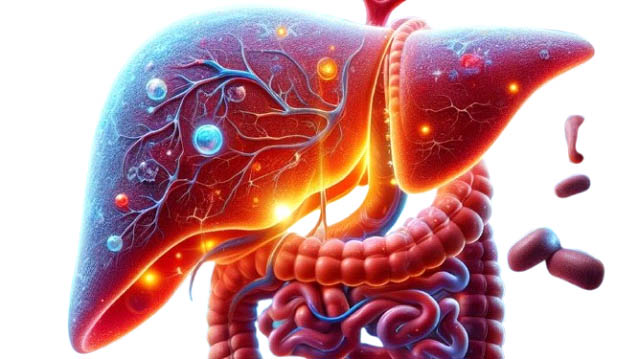By: Prof. Dr. Seyed Saeid Zamanieh Shahri, MD and Prof. Dr. Sonia Sayyedalhosseini, MD
Liver cancer is one of the chronic diseases. The liver is a vital organ that constantly filters the blood in the body. This organ converts nutrients and drugs absorbed from the digestive system into chemicals ready for use by body cells. The liver performs many other important tasks such as removing toxins from the blood and preparing them for excretion. For this reason, liver diseases should be considered serious.
What is liver cancer?
It is a type of cancer that starts from liver cells. The liver is an organ the size of a soccer ball, located on the upper right side of abdomen, below the diaphragm. Different types of cancer occur in the liver. Because all blood in the body must pass through the liver, the liver is accessible to cancer cells in the bloodstream.
The most common type of liver cancer is hepatocellular carcinoma, HCC. Other types such as bile duct cancer and hepatoblastoma are less common. Cancer that spreads to the liver (metastasis) is more common than cancer that originates from the liver’s own cells. Cancers such as the colon, lung or breast cancer, can spread to the liver, so, it is called metastatic cancer. This type of cancer is named after the organ in which it started. For example, metastatic colon cancer is used to describe a condition that starts in the colon and spreads to the liver.
Anatomy and Physiology of Liver:
The liver is located on the upper right side of the abdomen, just below the diaphragm, and is the largest internal organ in the human body. Adult liver weighs about 1.5 kg. The blood of the digestive system must first be purified in this organ before it goes to other parts of the body.
The main roles of this organ are to eliminate toxins from the body, absorb nutrients and help regulate the body’s metabolism. The liver has very important functions in the body so that life cannot continue without it. This productive organ also suffers from various diseases, the most important of which is fatty liver disease. One of the special abilities of the liver is that it has the power to regenerate, and therefore if a quarter of the liver is healthy or transplanted from a healthy person to someone who has lost their liver, it will be completely restored after some time.
The liver performs many vital functions in the body, including:
Blood Detoxification: The most important role of the liver is as a blood detoxifier. This organ contains cells with special enzymes that can break down toxic substances into non-toxic substances. These enzymes explain why some drugs, foods, and supplements can interact with each other. Some liver enzymes break down different types of toxic substances. If the enzymes encounter a significant volume of toxins, they may not be able to break down the substances efficiently.
That’s why you should always tell your doctor about all the medications and supplements you’re taking. You should also avoid taking medications with alcohol so that it does not cause drug interactions. Without these enzymes to break down toxic substances, the body slowly poisons itself.
Fortunately, the liver is very good at what it does. Therefore, we rarely feel the effects of these toxins unless we have ingested large amounts of liver-damaging substances such as alcohol, acetaminophen, or etc. If we are infected with viruses that damage liver cells, such as hepatitis, our liver may also have problems.
Production of blood clotting factors: The liver uses vitamin K to produce proteins important for blood clotting. Without these proteins, the multi-step process of blood clotting may be delayed. This is why people with severe liver disease or vitamin K deficiency often develop bleeding disorders. In a situation where the body is not able to coagulate blood, it repairs minor and ordinary injuries slowly, and people who suffer from this condition have a lot of bruises and bleeding in their bodies. This problem can be a very serious complication in the treatment of severe liver disease, because liver transplantation is a surgical procedure with a risk of severe bleeding.
To be continued …










